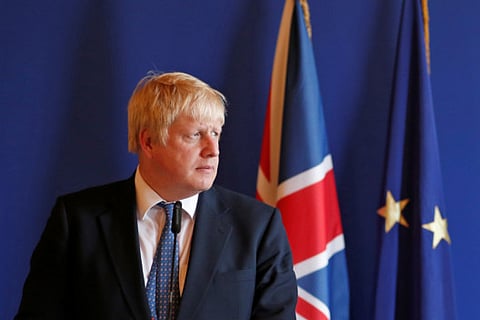Brexit killed UK’s new and improved vibe
Britain needs another go at image-building once it decides what it wants to be — a permissive offshore centre, a traditionalist post-imperial state or both

Britain’s enormous soft power, painstakingly built in the post-imperial era, looks weakened following Brexit. In fact, negotiating acceptable divorce terms or preventing an economic decline may prove much easier than restoring British influence. Some early indications of how Brexit has damaged Britain’s international perception can be found in a recent Ipsos poll conducted in 16 countries. In all of them except Russia, India and the US, a plurality says Brexit will weaken Britain; 64 per cent of Germans and, for example, 44 per cent of Canadians think so — while only 13 per cent and 15 per cent in these countries believe Britain will be strengthened.
Europeans are especially unhappy about the Brexit decision. In Italy, 37 per cent of people say they will be less likely to go to Britain on vacation and 43 per cent are less willing to buy British.
Even in countries that have not been spurned by Britain the way Europeans have been, a significant number of respondents now think less of Britain For example, 33 per cent of Indians, 21 per cent of Japanese and 17 per cent of Americans, according to Ipsos, are less likely to buy British goods and services.
There are many other signs in the poll that foreigners, especially Europeans, are offended by Brexit. In France, Germany, Italy, Belgium and Spain, a plurality want Britain to get an unfavorable deal on exiting the European Union — something that will make it politically difficult for these countries’ governments to go too easy on Britain as the divorce terms are negotiated. And everywhere in Europe large pluralities consider Brexit the wrong move for Britain, suggesting that Europeans like their union more than some recent polls indicate.
While the full impact of Brexit on Britain’s influence won’t be clear for some time, the immediate aftermath suggests Britain will once again be in search of a role. The last time they did so was only a semi-success. After some post-imperial floundering, a 1997 report by the think tank Demos kicked off a rethinking of Britain’s image for the 21st century:
Britain’s identity is in flux. Renewed national confidence in the arts, fashion, technology, architecture and design has coincided with the departure from Hong Kong, devolution, further integration with Europe, the imminence of the millennium and Princess Diana’s death.
The report resonated with Prime Minister Tony Blair, whose ‘New Labour’ had just won the general election. The phrase ‘Cool Britannia’ had already caught on by the time it was coopted for the Blair campaign, which stressed Britain’s creativeness and diversity, and the Millennium project to create new, ultramodern tourist attractions.
Domestically, the effort fizzled, as Charlotte Werther wrote in her 2011 essay on ‘Rebranding Britain’. Partly that was due to poor delivery and viciously hostile media reception. But under the rebranding, Britain remained a deeply traditional country that couldn’t easily associate itself with the image Blair appeared intent on building up. Globally, however, the image stuck and culminated in 2012 with the successful London Olympics — a feast of creativity and efficiency.
In 2012, Monocle Magazine’s soft power ranking put Britain in the first place in the world. It was easy to see why: There was the success of Skyfall, the most ambitious film in the modernised James Bond series; the phenomenon of Adele, who became the world’s best-loved female singer that year; the Tour de France victory of Bradley Wiggins and the triumph of tennis star Andy Murray at the Olympics and then at the US Open, making him the first British man to win a Grand Slam in 76 years. “The immediate consequence of this is that in 2013, British foreign policy has the capacity to promote positive change in the world, brought about through soft, rather than hard power,” gushed Lancaster University’s Simon Mabon.
That may have seem like an exaggeration now, but he had a point. This year, University of California Berkeley’s Andrew Rose established a relationship between a country’s soft power and people’s willingness to buy its products. “Countries which are seen to be exerting a more positive influence in the world tend to sell more exports to their admirers,” Rose wrote.
Britain’s charm attack has flagged a little since 2012. This year, before the Brexit vote, Monocle’s ranking had Britain in third place. Post-Brexit, it should fall further.
Just as in the late 1990s, Britain faces an identity crisis. It needs another conscious effort at image-building once it decides what it wants to be — a permissive offshore centre with the best opportunities for start-ups and hedge funds, a traditionalist post-imperial state or some combination. Otherwise, post-EU Britain will remain hard for outsiders to place — and thus to admire.
— Bloomberg
Leonid Bershidsky is a Berlin-based writer.
Sign up for the Daily Briefing
Get the latest news and updates straight to your inbox



